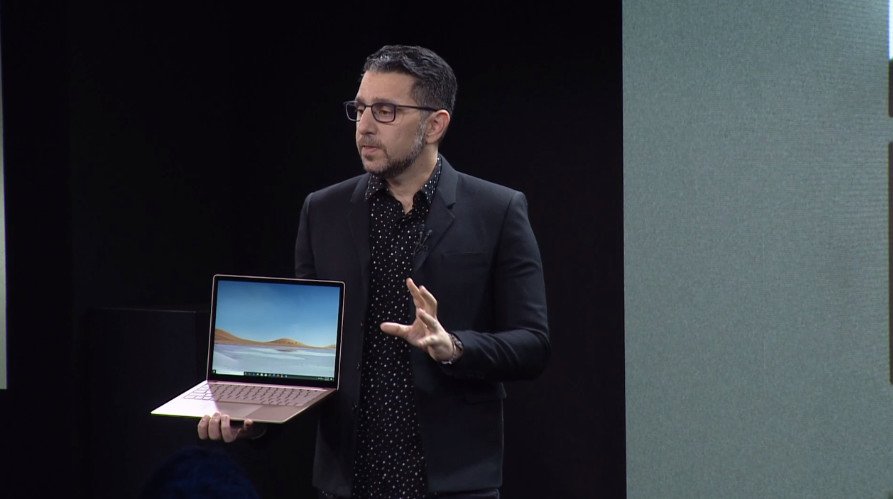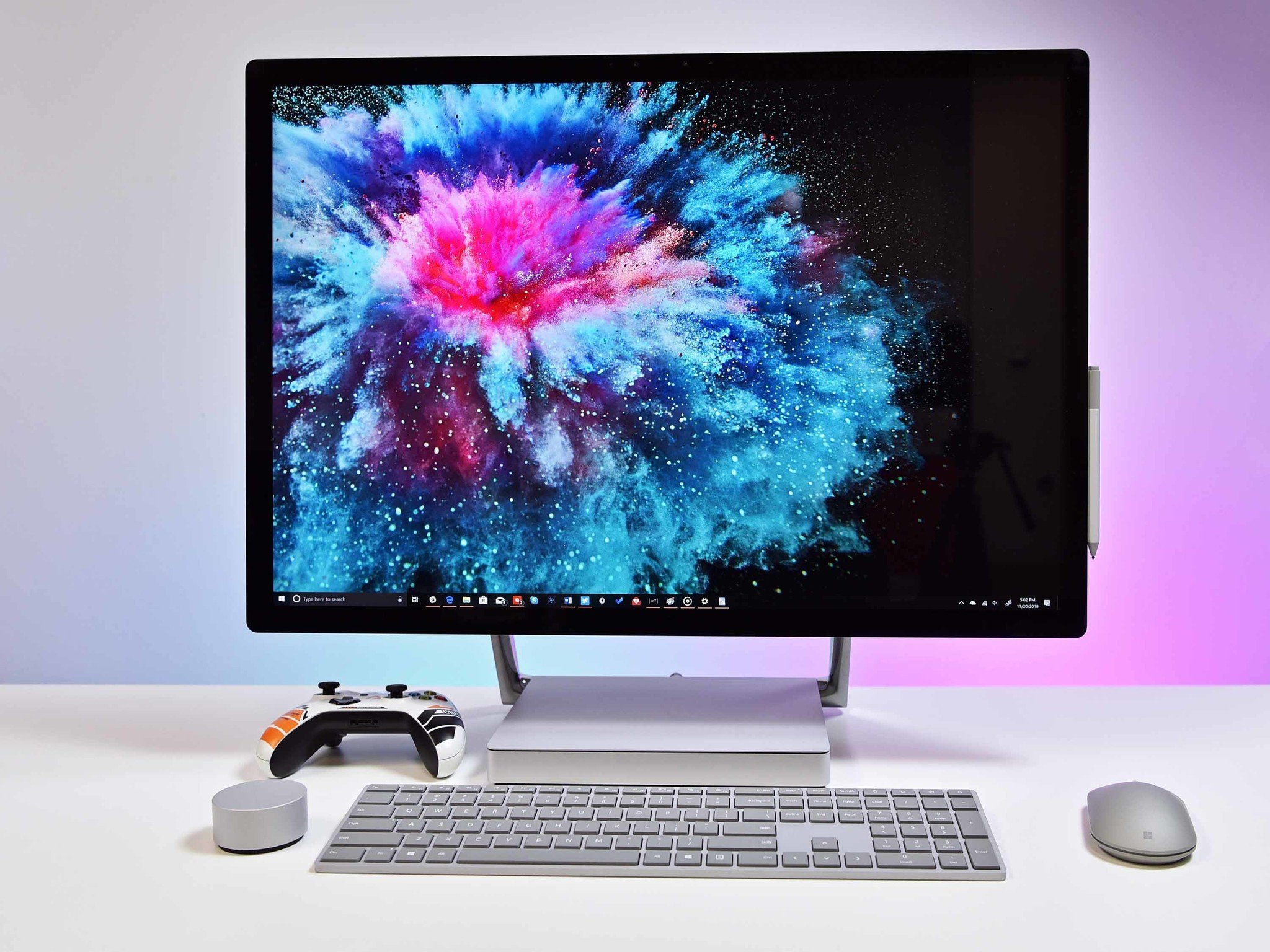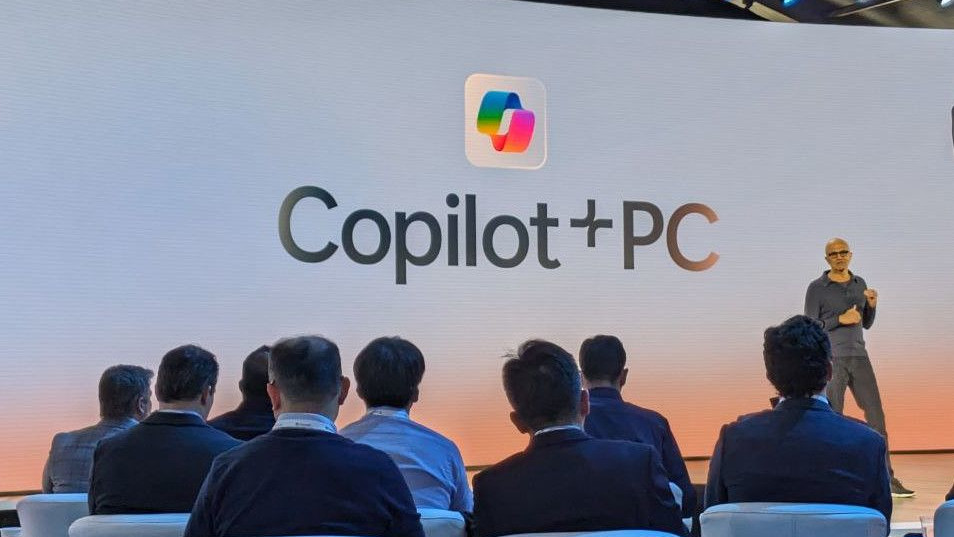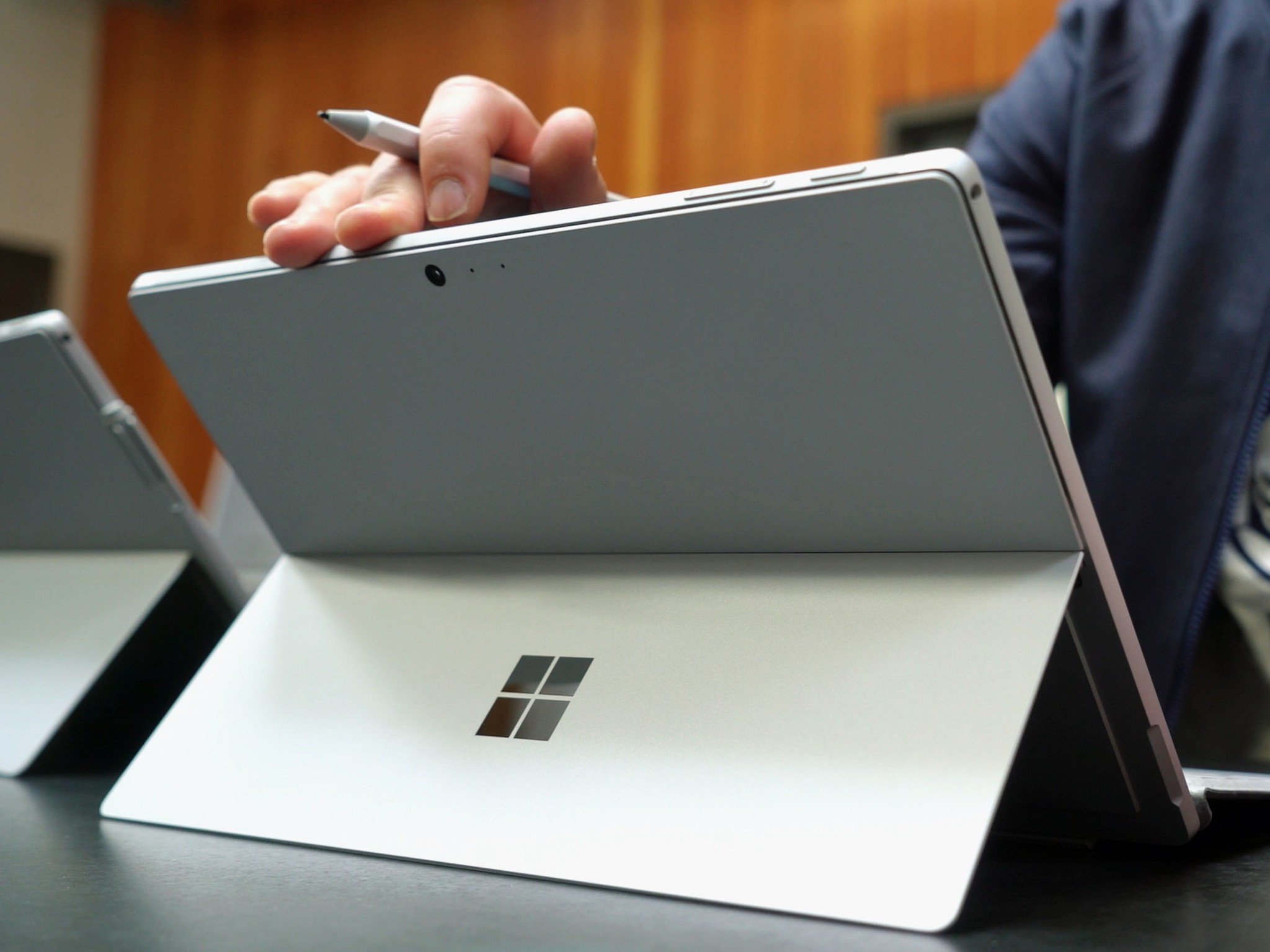
I often wonder if I've become cynical as I've aged, but at least sometimes, there's empirical data to back up a feeling.
Last quarter, Microsoft's financial results revealed yet another decline for its Surface division, which saw its seventh consecutive quarterly drop. There's no universe where those results can be spun into a positive, and honestly, it didn't have to be this way.
Surface has always fought with one arm behind its back, in essence. Surface worked hard not to step directly on the toes of Microsoft's powerful Windows OEM partners, like Dell and Lenovo, instead drilling into niches to find its audience. It felt like, at least for a time, that these restrictions helped Surface to find its differentiation, forcing it to innovate across every inch of the product to stand out in a bustling and competitive market. Surface reinvigorated the laptop market, forcing OEMs to re-evaluate their approach to design in a world where Apple has crowned itself the King of Hardware Style.
I would argue that every laptop OEM has become better and more interesting as a result of Surface, but it wasn't simply about hardware innovation, either. Surface co-creator and previous hardware chief Panos Panay had the charisma and showmanship to really sell the vision of the Surface brand.
Microsoft is spending more than ever on R&D, racing to commercialize AI tools like Copilot with the masses. But, I feel it's hardware, not software that will inspire the future of this paradigm. Perhaps Microsoft even agrees, which is why it shoveled out its uninspired Copilot+ PC range earlier this summer to a collective "meh" from consumers.
Unfortunately, Microsoft seems to have given up on innovating in consumer hardware endpoints, and its attitudinal shift couldn't have come at a worse time. This shift, from a focus on consumer hardware to other areas, is a cause for disappointment and regret, especially considering the potential that Surface once held.
🎃The best early Black Friday deals🦃
- 💻Surface Pro 11 (X Elite, device only) | $1,199.99 at Best Buy (Save $500!)
- 📺LG Curved OLED Monitor (32-inches) | $899.99 at Amazon (Save $600!)
- 🎮Amazon Fire TV Xbox Game Pass bundle | $74.99 at Amazon (Save $62!)
- 🔊2.1ch Soundbar for TVs & Monitors | $44.99 at Walmart (Save $55!)
- 💻Dell G16 Gaming Laptop (RTX 4070) | $1,299.99 at Dell (Save $450!)
- 🎧Sennheiser Momentum 4 ANC | $249.95 at Amazon (Save $150!)
- 📺LG C4 OLED 4K TV (42-inches) | $949.99 at Best Buy (Save $450!)
- 💻Samsung Galaxy Book4 Edge (X Elite) | $799.99 at Best Buy (Save $550!)
Surface was so good, even Apple had to copy it
It feels odd that I'm going to bat for Surface, especially considering I wrote an article a while back about why I stopped buying Surface. It that article, I essentially argued that the Surface devices were over-engineered and didn't prioritize the little things. You know, like not getting hot enough to fry an egg. However, I didn't argue that Microsoft should give up and stop trying.
Surface, for all its flaws (and extreme price tags), was an absolute singularity of excellence when it came to innovation. While unnecessarily complex for most consumers, the fulcrum hinge on the Surface Book required a mountain of engineering expertise to pull off — and it certainly wasn't innovation for the sake of it. The point of the hinge was to give the Surface Book the angled profile of a flat drawing tablet, which I used to love using. I reviewed apps like Sketchable on the Surface Book in all of its slightly angled glory, and it represented the niche Microsoft was ultimately gunning for here while avoiding stepping on its OEM partner's front lawn.
Indeed, Surface innovated in ways that no other company has been able to replicate since its inception. The elegant hinge mechanism on the Surface Studio remains a marvel to this day, with few other devices able to mirror what it is capable of. The absurd thinness of the Surface Duo folding phone, which I'm fairly certain hasn't been defeated even to this day, with its capability to fold all the way into reverse. Even when you go all the way back to the Surface RT, with its hinged 2-in-1 tablet-meets-laptop formula, it inspired even Apple to commit to its wholesale rip-off in subsequent versions of the iPad Pro.
The flaws in the Surface devices were well documented, of course. They were incredibly pricy for what they ultimately were. The elegance in their slim profiles often came at the cost of cooling, which then came at the cost of performance throttling. My Surface Book 2 became so unusable during the summer months that it made me swear off the brand for good since it became increasingly apparent they were designed with air-conditioned environs in mind. But thanks to advancements in energy efficiency and chips like those found in the most recent Surface Pro 11 devices, Surface's form is finally catching up to its potential function. But the problem is, nobody cares.

Surface sales have dropped quarter over quarter, in news which, to be fair, isn't exclusive to Surface. Apple Mac sales are down, too, and so are PC shipments in general, contracting by 2.4% year-over-year, according to the IDC. The IDC also says that AI integrations will be key to helping the traditional PC and laptop market recover, but Microsoft's hyped Copilot+ debut was mired in controversy that still dogs its AI efforts to this day. People don't trust Microsoft's AI features, and even the "potential" for privacy violations has become a fairly broad meme among tech enthusiasts that influences broader attitudes, at least to some degree.
There's still plenty of potential for these AI-first devices to make up the bulk of future business-oriented sales in the coming year, but I think Microsoft will continue to have issues inspiring interest from regular consumers. The lack of excitement around this year's Surface line-up is pretty plain to see and will most likely be readily reflected in Microsoft's quarterlies set for October 30, 2024.
(Credit where credit is due: Our Editor-in-Chief has said that Surface Pro 11 is everything that Surface Pro has been trying to achieve since its inception, making it easily one of the best Windows PCs of 2024. Much of that is chalked up to the new Qualcomm Snapdragon X processor, but it's also the culmination of excellent design and refinement over the last decade.)
Panos Panay and the Surface of old represented effortlessness in communicating with consumers. Of course, Surface operated under some extremely difficult circumstances—building aspirational devices for enthusiasts and in very niche creative spaces. Yet still, Panos Panay's Surface sparked the imagination. It made regular folk aspire to own Surface devices and ultimately grew Surface into a billion-dollar business that counts nation-states among its customers. The Surface brand elevated all Windows laptops with its efforts in presentation, hand-in-hand with innovation.
Surface had excellent customer service and great accessories and was frequently in the news trying new things, inspiring confidence that Microsoft was well and truly serious about hardware products and consumer services. The Surface Laptop and Surface Pro lines continue to be hallmarks of excellence for their respective categories, but there's nothing special about them anymore, with every manufacturer co-opting their features.
Perhaps that was ultimately the aim of Surface but with the rise of AI and Microsoft's efforts to actually sell it to people, giving up on hardware innovation couldn't have come at a worse time.
The modern Microsoft has sacrificed chasing product excellence to become a glorified bank

Microsoft CEO Satya Nadella said he regrets shutting down Windows Phone, and it's plain to see why. Trying to mainstream services like Bing, Microsoft Copilot, or even Xbox Game Pass' cloud gaming relies on digging through Apple and Google's draconian stranglehold over their operating systems. Even if there's been some regulatory movement to break Apple and Google open to Microsoft's benefit, the damage has already been done well. Nobody will change their default browsers, tools, and services away from what is pre-installed on the device. Nobody is going to quit Google Chrome for the near-identical Microsoft Edge. Nobody is going to quit Google for Bing.
Merely offering a product that is 'near-identical' to the competition is not enough to change user behavior. To truly make an impact, innovation is key. Microsoft needs to offer something new, compelling, and above and beyond what Apple and Google provide.
It's perhaps understandable that Microsoft has given itself cold feet when it comes to hardware. Products like the Surface Duo are now dead, the Microsoft Band is a distant memory. There will be no HoloLens 3. Even the Xbox Series X|S is struggling, with year-over-year declines. It's perhaps all the more frustrating given how much AI assistive features would probably shine more on these types of devices, over Windows itself.
Xbox has been propped up by a massive $70 billion purchase in Activision-Blizzard-King, however. And Microsoft's stock price enjoyed a huge bounce over the past couple of years thanks to its savvy investments in OpenAI, which is leading the world when it comes to large language model AI hype. But it's difficult to ignore the pattern of Microsoft buying its way into the party here.
Microsoft's Activision acquisition is ultimately representative of a failure in Windows Phone since the purchase really revolves around having a foothold in mobile gaming. Microsoft's own AI division failed to produce anything worthy of note, forcing it into a strange deal with OpenAI that sees it directly competing with its own partner.

And sure, I'm not naïve. Microsoft's c-suite is responsible for boosting the company's share price above all else at the end of the day, and the investment strategy has paid off dividends (literally) for investors. Xbox is now bigger than Windows itself, despite having to give Apple and Google a massive cut of the Activision mobile revenue. The AI hype train continues for Microsoft's share price, too, despite the fact that the OpenAI connection is potentially problematic for various reasons. However, Microsoft increasingly looks more like a glorified bank than a products and services company.
The pace of real product innovation across Surface, Xbox, Windows, and other consumer-facing businesses is really quite apparent. The best feature Microsoft could conjure up for its Copilot+ PC range, Windows Recall, has not landed well. Xbox's big holiday hardware innovation is a white color scheme and an omitted disc drive, although we'll take the $50 saving. The Copilot app on Windows has actually lost features over time and is ultimately nothing more than yet another Bing wrapper. Copilot also has fewer OS hooks than Cortana did at her peak too, which is hilarious when you think about it. At least Cortana could check my calendar.
Many of Microsoft's competitors are forging ahead with real innovation in the AI space. Adobe just debuted generative expand for video clips just yesterday. I can't even get Microsoft's video editor Clipchamp to open half of the time. My Samsung Galaxy phone has more AI features baked into it than Windows does, all without an OpenAI partnership. It's absurd to me that Samsung Notes has more AI features than Microsoft OneNote.
Microsoft isn't building with the same sense of urgency it seemed to have during the height of Surface's notoriety, and I'm not sure why, given the stakes that AI presents. AI and LLMs are already spinning out into a variety of subscription-based services and systems for a variety of use cases, and Microsoft doesn't seem to be meeting any of them head-on.
Microsoft is spending more than ever on R&D, but where's the money going?

AI might be cloud-based, but you need a real-world hardware endpoint to interact with it. Putting a web wrapper on Bing, slapping a Copilot key on a subset of a subset of laptops, and calling it a day is a truly pathetic effort and not something the masses will ever care about.
Assuming Copilot is even the right product, it needs its Surface Pro moment. The pop of that kickstand, the glide of that pen, that Surface Book "detached display" moment. Copilot needs something tactile that people can reach out to and touch. Something that someone with a real passion, like Panos Panay, can get up on stage and demonstrate and showcase why it is actually a good thing. That undercurrent of infectious passion is sorely lacking in Microsoft's tedious modern presentations, and it precludes them from driving the hype that its consumer-facing products arguably need to succeed.
RELATED: Why Microsoft won't be the ones to mainstream consumer-facing AI
People at Microsoft are being paid far more than I am to figure this stuff out. I'm almost certain that the ideas are rattling around somewhere within Microsoft's labs too, whose only hurdles to becoming a massive success story are Microsoft's own corporate rigidity and structural apathy.
👀 pic.twitter.com/dDmVB1XIH4October 16, 2024
Panos Panay has now brought that spirit of innovation to Amazon's devices team, which just announced the first-ever full-color Kindle e-reader. And that's not to say that spirit of innovation was only the result of Panos, of course. Surface is more than any single person, representing a singularity of industry-leading engineering prowess that I believe remains world-class. The latest Surface devices are still excellent. But I think from the c-suite level down, Satya Nadella is at the top, and the hunger for product innovation clearly isn't there anymore. Surface is coasting now because that's all Satya Nadella wants out of it. That's most likely why Panos Panay fled for Amazon and Surface architect Ralf Groene left.
That Surface "spirit of innovation" most likely still exists within the company, too, of course. It's more likely that it's being suppressed by a C-suite culture that probably should've gone into banking rather than tech. As such, I wouldn't be surprised if Panos and Amazon mainstream generative AI subscription feature with dedicated hardware now over Microsoft itself.
For all of the more experimental Surface's flaws, the spirit of innovation Surface used to represent and used to inspire is something Microsoft is sorely lacking right now, if it ever wants consumers to care about things like Copilot, Recall, Bing, or perhaps even Windows itself.
But hey, shareholders certainly don't seem to care. So, consider this a rant into the ether — much like consumer feedback on Microsoft in general.







